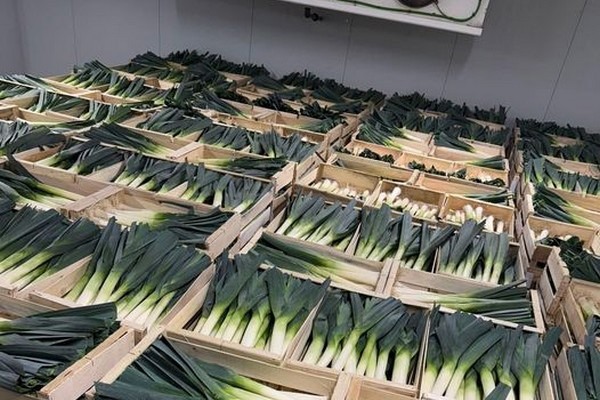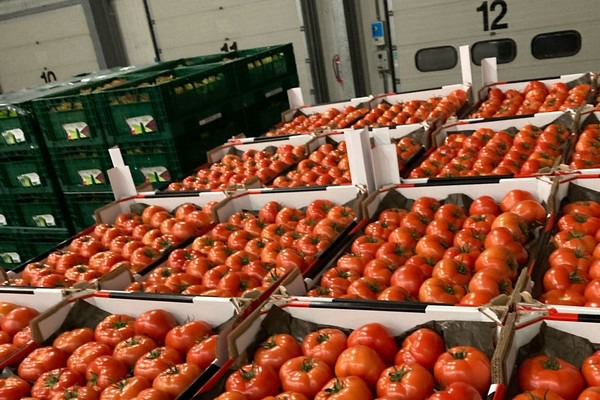There is currently a transition period in the leek market. Peppers, meanwhile, are "spot on," shares Jeroen Buyck of Calsa.
"It has been hot the last few weeks, so everyone was harvesting at full speed to get all the leeks into cold storage. Everything that needed to be stored should now be in, and the last leeks are being harvested and prepared for direct sale," he explains. "As a result, we are currently seeing somewhat larger leeks, as everything has grown significantly in recent weeks due to the nice weather. When we switch to cold-stored leeks, there will once again be more available that are smaller in size." How will the market develop in the coming weeks? "I find that hard to predict. The market will be there, but how much demand there is, how much is in storage, and how the weather behaves will ultimately determine the rhythm of the market."

"When the temperatures improve, you traditionally see demand for a winter product like leeks decline. Nevertheless, I hope the end-of-season leeks will perform as they have in previous years. Prices for cold-stored leeks have been decent during the summer months, so I expect it to go well again this year. It's also necessary because the costs involved are significant. Cooling and storage costs are high. Moreover, the later you get into the season, the more waste you have, which raises the cost price even further, and that must be compensated for in the selling price."
Looking back at the past few weeks, the trader is moderately satisfied. "Demand was there, but prices were not very high. They consistently hovered between 40 and 60 euro cents, so nothing special. In terms of markets, much of the supply went mainly to Eastern Europe and partly to Southern Europe, but prices were always carefully considered there. Customer demand drops were not so significant that they were willing to pay more. So, there was a balance in the market, but not a situation where prices shot up quickly. There was still quite a bit of supply from France, but that is now declining a bit, and as a result, we are seeing prices slowly but surely starting to rise over the past few days."

Peppers spot on
Nevertheless, Jeroen notes that demand is shifting towards greenhouse vegetables. "It is really peak season for us at the moment. Tomatoes, peppers, and cucumbers are replacing winter vegetables. We are seeing good demand for these products, but peppers, in particular, are at a very low price level. It's really unbelievable. I think it's because, after a long, dark period, it suddenly became sunny, which led to a surge in availability. Demand can't keep up so quickly. On top of that, Spain is also on the market, so everything is coming together. Still, I don't fully understand why prices have to be this extremely low. We see this to a lesser extent with vine tomatoes, but especially with peppers, it's very striking. We haven't often seen this happen so early in the season. I still hope it improves because, at the end of the day, everyone needs to be able to earn a living."
For more information:
Jeroen Buyck
Calsa
Roeselaarsestraat 9b
8850 Ardooie, Belgium
Tel: +32 (0)51 74 73 74
info@calsa.be
www.calsa.be
